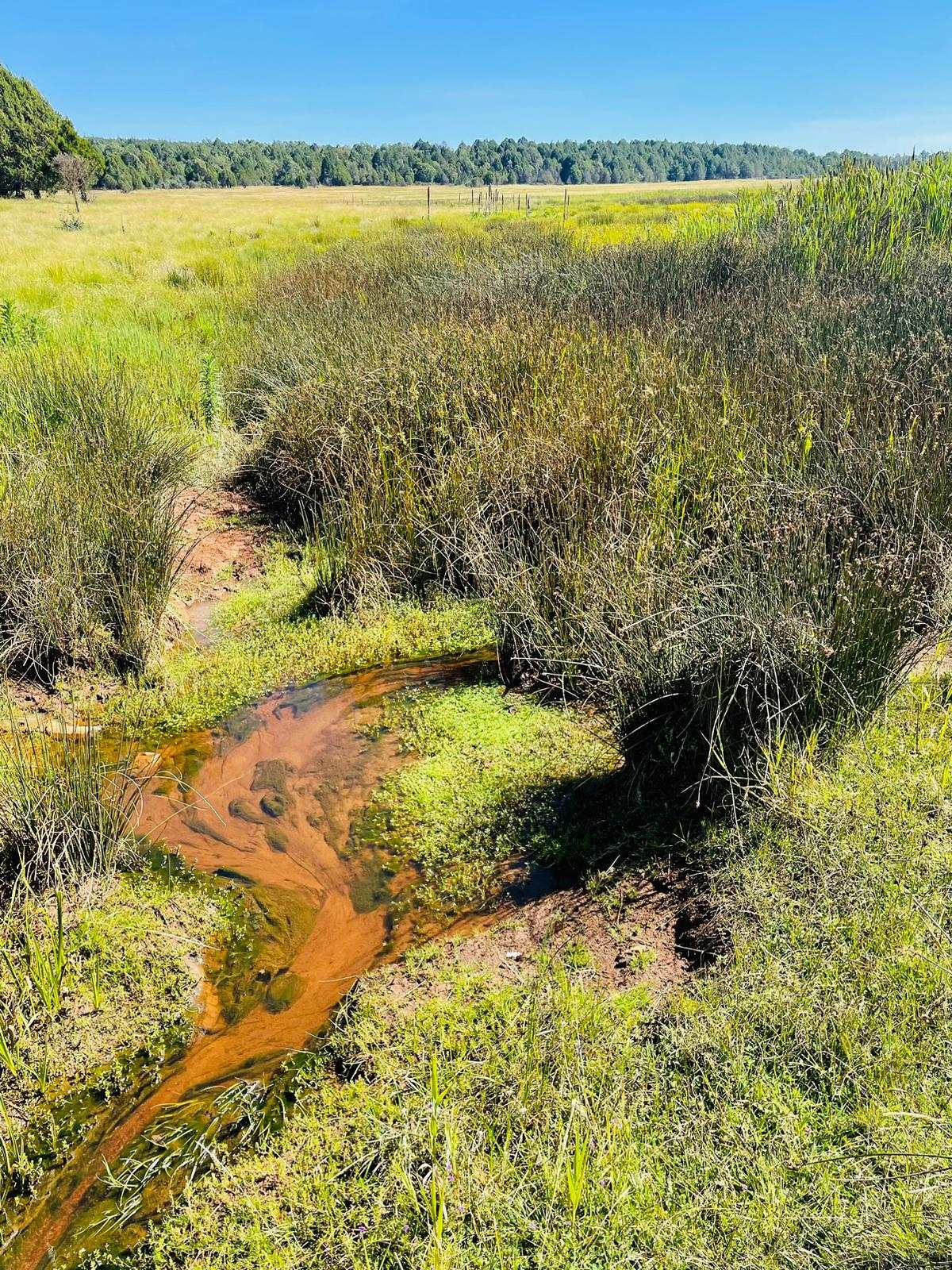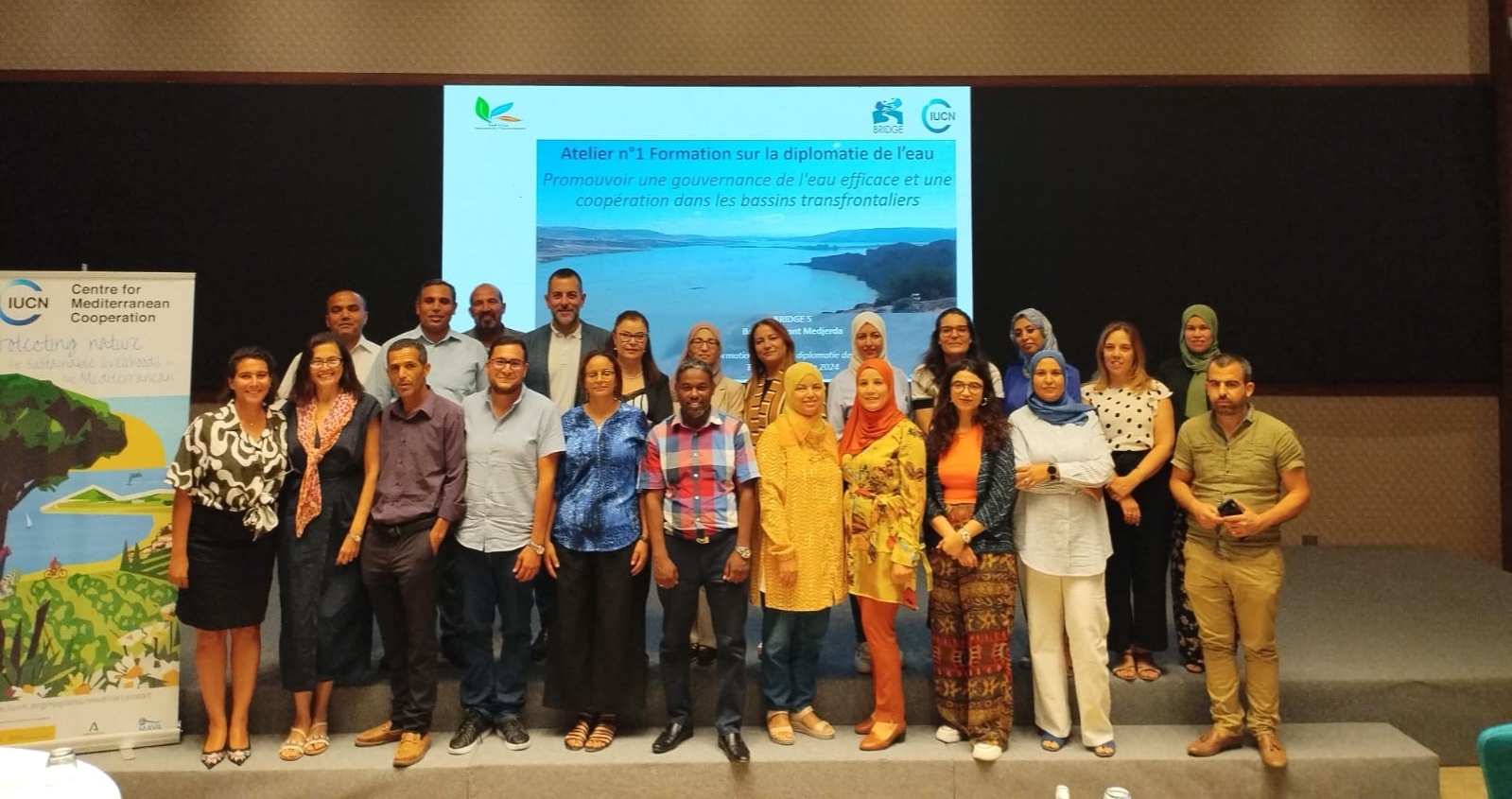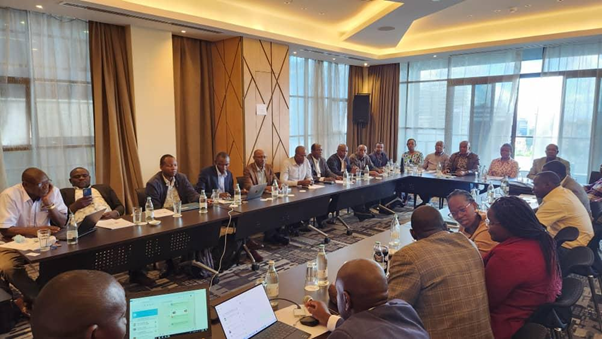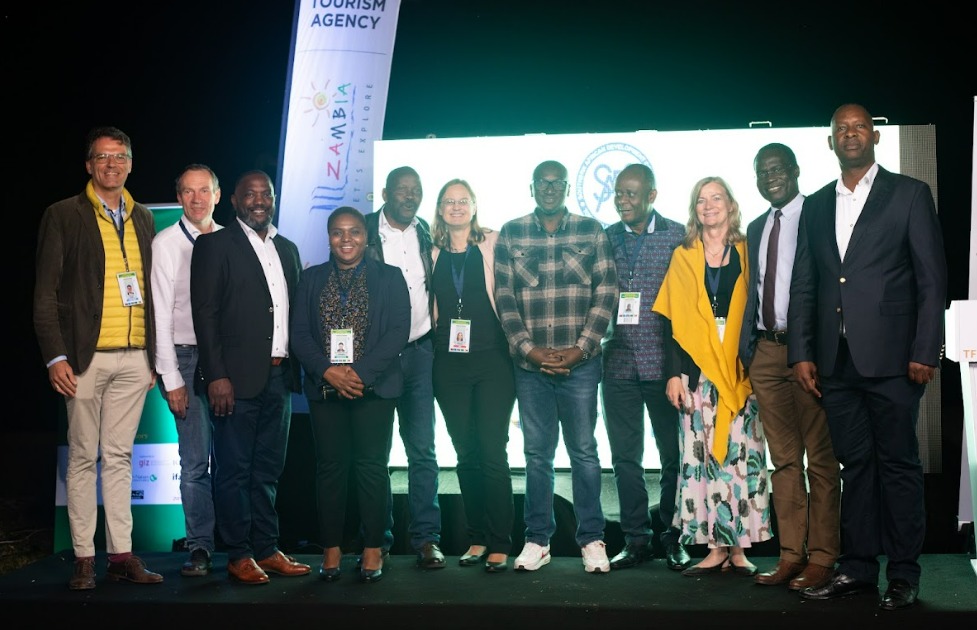BRIDGE implementation team meets in Nairobi to accelerate water governance across 20 transboundary river basins
Eighteen months into the fifth phase of IUCN’s Building River Dialogue and Governance programme (BRIDGE-5), regional coordinators and technical experts from ten IUCN offices met in Nairobi between 4 and 8 March 2024, to take stock of achievements until now and accelerate implementation. The full BRIDGE team is convened every eighteen months to foster collaborative efforts in transboundary water resources management and share lessons learned from programme implementation.
In a world where water scarcity and pollution transcend political boundaries, effective governance frameworks are essential for addressing interconnected water challenges. Transboundary water governance is not just about managing shared water resources; it's about fostering collaboration, building trust, and promoting sustainable and peaceful development across borders.
Funded by the Swiss Development and Cooperation Agency (SDC) since 2012, BRIDGE is among IUCN’s longest running programmes, positioning the Union as a leader in facilitating transboundary water diplomacy and cooperation across the world. Currently in its fifth phase, BRIDGE has through its lifetime been operational in 25 transboundary river and lake basins with the overall objective to create effective institutions for sustainable management of water resources and contributing to long-term security and blue peace.
The unique aspect of the Nairobi meeting lies in the diverse representation it brought together. Participants from ten IUCN offices gathered to discuss BRIDGE results and outputs, align strategies on thematic issues, and accelerate implementation on key outcome areas. The meeting also served as a platform to identify portfolio expansion opportunities, areas for joint collaboration, and co-funding prospects. Throughout the five-day event, thematic sessions focused on growing activities such as benefit sharing, increased gender, youth and indigenous communities integration, financial sustainability, and in addressing water challenges in fragile institutional environments. Participants were able to exchange experience and co-develop strategies to overcome obstacles based on the practical global experience BRIDGE brings to mobilise effective transboundary water governance.
BRIDGE has been active in the ESARO region including Kenya since 2016 with the implementation of a benefit sharing process in the Sio-Malaba-Malakisi (SMM) basin shared between Kenya and Uganda. This process developed a joint investment plan which is currently being mobilised by the countries for implementation. Engineer Martin Okirya from NELSAP Coordination Unit based in the SMM basin gave a presentation to the group on the Angololo Multipurpose Dam and governance arrangements surrounding it, one of the investment projects prioritised during the SMM investment plan development process and which is being fast tracked for implementation by the two SMM basin riparian countries, Kenya and Uganda.
 Photo: ©IUCN
Photo: ©IUCN
The team also had the opportunity to broaden their understanding of the local context with a field trip to one of the sources of the Mara River in Bomet County – the Amala. Mara river is famous for the unique annual migration of 1.5 million wildebeest as they look for fresh grazing pasture and follow the rainfall for better water sources. Joining local Water Authorities, the trip highlighted the very real local water management challenges in the headwaters of the river system that can affect the entire river if left unchecked. This includes agricultural and livestock encroachment into protected parts of the headwaters, as well as policy gaps and regulatory compliance.
Recognising the need for collaborative solutions, BRIDGE has actively built strategic partnerships with other organisations working in the basin, and through a stakeholder meeting participants were able to exchange on the challenges with local representatives from government agencies and community organizations to identify solutions to better protect the headwaters of the river.
Reflecting on the outcomes of the meeting, John Owino, BRIDGE Regional Coordinator from IUCN ESARO and host of the event, emphasized the significance of collective action in achieving sustainable water governance. "This regional event exemplifies our commitment in fostering collaboration across continents, … by pooling our knowledge, expertise, and resources, we can overcome challenges for greater water resources management".
The BRIDGE-5 Global Technical Meeting in Nairobi underscores the importance of transcontinental cooperation in addressing complex water challenges and advancing towards the IUCN Nature 2030 mission.
For more information please contact:
BRIDGE Project Manager: James.Dalton@iucn.org
BRIDGE Project Global Coordinator: Maria.Lindelien@iucn.org



